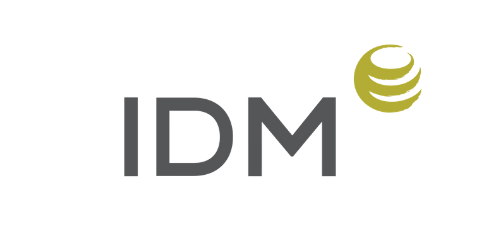Bridging the skills gap: empower your workforce with continuous learning
For all HR Professionals interested in continuous learning, we’re sharing this fantastic article from People Management in the UK.
—-
Discover how HR professionals can bridge the skills gap by adopting a continuous learning framework that breaks down essential skills into manageable steps, allowing for ongoing assessment, development, and measurable growth
The nature of work continues to shift and organisations are being forced to address a fundamental skills gap in their workforce. According to recent research from McKinsey, 58 per cent of businesses said that closing skills gaps had become a higher priority since the pandemic.
You might assume this 'gap' refers to technical skills, but it's actually about essential skills – universal soft skills such as problem-solving, listening and teamwork – that help workers thrive in fast-paced, collaborative environments. These essential skills differ from basic skills, such as literacy, numeracy and digital competence, as well as from technical skills, which are specific to certain roles or sectors and can quickly become obsolete.
Research suggests that people with higher levels of essential skills experience higher social mobility, employment, earnings and job satisfaction. On an economic level, the cost of low essential skills to the UK in 2022 was £22.2bn – comparable to the cost of low numeracy. Yet, according to the CIPD Good Work Index 2023, 23 per cent of workers surveyed disagreed that their job offered good opportunities for developing skills.
HR professionals need to work with their organisations to identify the essential skills people need – especially early-career talent, who may have all the qualifications on paper but not enough soft skills – and then put in place continuous training that is tailored to each person. After all, addressing the essential skills gap can boost employee morale, engagement and motivation, which ultimately enhances overall business performance.
Which essential skills do employees need?
One way to help your employees build on their essential skills is to use the Skills Builder Universal Framework. Skills Builder, a social enterprise, has identified eight essential skills: listening; speaking; problem-solving; creativity; staying positive; aiming high; leadership and teamwork. These skills help people do any job, anywhere and improve their ability to apply their technical skills and knowledge.
Tom Ravenscroft, CEO and founder of Skills Builder, says, “These eight skills help employees succeed by enhancing their adaptability, collaboration and productivity, enabling them to thrive in various roles and industries. As the modern workplace evolves, these foundational skills become even more crucial for long-term career growth and organisational impact.”
The Skills Builder Universal Framework is a supportive tool which helps employers and HR professionals to develop these essential skills within their workforces by setting out how each skill can be learned in a granular, step-by-step way and then by being able to assess the progress of that skill's development.
Learning is not one-size-fits-all
Many people’s experience of learning is linear, but the rise of sophisticated online learning allows for tailored, highly personalised learning.
This is especially important when it comes to neuroinclusion. According to CIPD’s Neuroinclusion At Work Report 2024, only 54 per cent of employees said their manager welcomed different styles of thinking, processing information, learning and communication.
“Tailored learning works by adapting training programmes to fit each employee's unique needs and learning styles,” says Ravenscroft. “For neurodivergent employees, this could mean offering a mix of learning formats, including visual aids, hands-on activities, or flexible timelines to accommodate different processing speeds.”
For example, Skills Builder Launchpad offers short learning modules that allow users to choose whether they want to hear, watch or read key information, based on their preferences.
“Personalisation can also include one-on-one coaching, mentoring, or access to assistive technologies, ensuring that learning experiences are inclusive, equitable and aligned with employees' individual strengths and development needs,” Ravenscroft adds.
Everyone – not only neurodivergent individuals – stands to benefit from personalised and tailored learning. The Skills Builder Universal Framework helps all learners to move from thinking about skills in a broad way into a structure that works for them, both in terms of learning and assessment of progress.
Boosting growth and innovation
Skillsoft, an online training company, started working with Skills Builder three years ago and recently integrated the Universal Framework into its AI-driven learning platform, Percipio.
Mark Onisk, chief content officer for Skillsoft, says, “The demand for continuous learning and upskilling has become paramount for every business. We recognised an opportunity to combine Skillsoft’s expertise in learning and development with Skills Builder’s Universal Framework.
“Our research shows that learners are advocating for a combination of video-based, interactive, and live, instructor-led training in particular. By incorporating these methods with experiential AI tools, classroom-style training opportunities and on-demand courses, we create a more holistic and engaging learning experience.”
Onisk says the importance of essential skills is clear, describing them as “the cornerstone of career development, and not confined to a single technology, role or industry”.
He adds, “By acquiring these skills, learners can take on advanced roles, embrace new challenges and diversify their professional experience.”
Top tips for HR professionals
You’ve worked out which essential skills are needed in your business, identified the gaps and devised personalised learning plans. But how can you assess the effectiveness of your skills-building strategy?
Skills Builder Benchmark is a tracking tool that allows employees to self-assess periodically, recording changes in essential skill levels over time.
“Feedback from both individuals and line managers is another critical component,” says Ravenscroft. “Employees can offer insights into their growing confidence and capability in using essential skills, while managers can observe improvements in performance and behaviour within teams. Regular feedback sessions can help HR understand the real-world impact of their essential skill development programmes and adjust them accordingly.”
